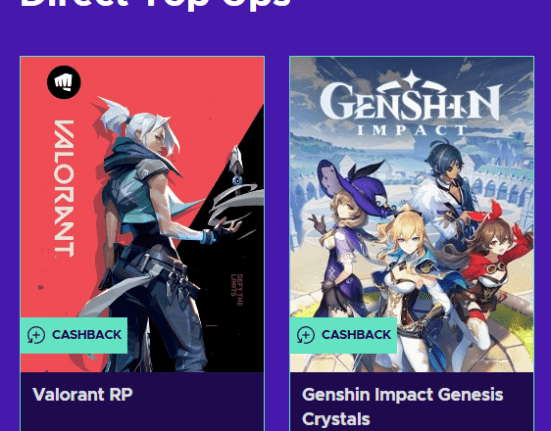Introduction to the Epic Tale of Ulysses
Journeying through time, few stories captivate the imagination quite like Ulysses’ Odyssey. This epic tale of adventure and perseverance has been passed down through generations, enchanting readers with its rich characters and timeless themes. It’s not just a story about a hero trying to find his way home; it’s an exploration of human resilience in the face of insurmountable odds.
Picture this: Ulysses, king of Ithaca, finds himself trapped in a web of trials after the Trojan War. Each challenge he faces reveals something profound about courage, loyalty, and the quest for knowledge. The journey is as much internal as it is external—a reflection on what it means to be truly human.
As we dive deeper into this classic narrative, let’s unravel some key events that shaped our beloved hero’s path while uncovering lessons that remain relevant today. Buckle up for an odyssey unlike any other!
The tale of Ulysses, a hero with an insatiable thirst for adventure, has captivated imaginations for centuries. From the fiery battlegrounds of Troy to the serene shores of Ithaca, his journey is not just a quest for home; it’s a profound exploration of human resilience and cunning. Each twist and turn in this epic odyssey reveals deeper truths about love, loyalty, and the trials that define us.
As we delve into Ulysses’s world—a landscape filled with gods, monsters, and temptations—we uncover lessons that resonate even today. Whether you’re a student of literature or simply someone who loves stories rich with meaning, Ulysses’s adventures offer timeless insights worth exploring. Join me as we navigate through these legendary waters and discover what makes this ancient saga so enduring and relevant in our modern lives.
The Journey Begins: A Summary of Key Events
Ulysses’ journey starts in the aftermath of the Trojan War. He longs to return home to Ithaca, but fate has different plans.
His first major challenge arises when he encounters the Cicones. The victory turns sour as they face a fierce counterattack that forces them to flee.
Next, Ulysses and his men land on the Island of the Lotus-Eaters. Here, some crew members succumb to temptation, forgetting their homes and desires for adventure.
The encounter with Polyphemus is one of terror and cunning. Ulysses blinds the Cyclops in a clever escape plan that seals his fate with Poseidon’s wrath.
From there, each stop brings new trials—Circe’s magic makes men swine, while Scylla and Charybdis present impossible choices at sea.
Every event shapes Ulysses into a more complex figure. His resolve strengthens even as obstacles multiply along this perilous path homeward.

The Hero’s Challenges and Triumphs along the Way
Ulysses faced countless trials that tested his resolve. From the treacherous waters of the Cyclops’ lair to the enchanting songs of Sirens, danger lurked at every turn. Each encounter challenged not only his strength but also his wits.
The infamous Cyclops, Polyphemus, showcased Ulysses’ cunning nature. He ingeniously blinded the giant and escaped with his men, proving that intelligence can triumph over brute force.
Then came Circe, a sorceress who transformed his crew into swine. With clever negotiation and determination, Ulysses turned their fate around by winning her favor rather than succumbing to despair.
Every challenge shaped him further on this transformative journey homeward. Whether facing divine wrath from Poseidon or navigating through mythical realms, Ulysses demonstrated resilience time and again—an embodiment of human perseverance against insurmountable odds.
Themes and Lessons from Ulysses’ Odyssey
The Odyssey is rich with themes that resonate across time. One prominent lesson is the power of perseverance. Ulysses faces countless obstacles but never loses sight of his goal—returning home.
Another significant theme is the importance of cunning over brute strength. Ulysses often relies on his wits to outsmart foes, illustrating that intelligence can be as powerful as physical prowess.
The concept of loyalty shines throughout the narrative. Penelope’s unwavering faithfulness and Ulysses’ bond with his crew highlight how vital relationships are in facing adversity.
Moreover, hospitality emerges as a crucial value in Greek culture, showcasing both its rewards and dangers. Encounters with characters like Circe and Calypso reveal how kindness can lead to unexpected consequences.
Each challenge faced by Ulysses teaches resilience, adaptability, and the complexity of human nature—all lessons still relevant today.
The Odyssey’s Impact on Literature, Art, and Culture
The Odyssey has left an indelible mark on the world of literature. Its narrative structure and character development have inspired countless writers, from Virgil to James Joyce. The themes of adventure, loyalty, and identity resonate deeply across genres.
Artists have also drawn inspiration from Ulysses’ journey. Countless paintings and sculptures depict key moments—Odysseus confronting Cyclops or navigating past Sirens. These visuals capture the essence of human struggle against fate.
Beyond literature and art, The Odyssey’s influence permeates popular culture. Movies, TV shows, and even video games borrow elements from this epic tale. Modern retellings often reimagine Ulysses in contemporary settings while preserving core themes.
Cultural references abound as well; phrases like “the long way home” evoke images of Odysseus’s trials. This ancient story continues to shape our understanding of heroism and resilience today.


Modern Interpretations and Adaptations of the Odyssey
The legacy of Ulysses’ Odyssey continues to thrive in contemporary culture. Its themes resonate deeply with modern audiences, prompting countless interpretations and adaptations across various mediums.
Film is one popular avenue where the tale reimagines itself. Movies like “O Brother, Where Art Thou?” take inspiration from Ulysses’ journey while infusing it with humor and a distinct cultural twist. This melding of ancient narrative with modern storytelling captivates new generations.
Literature also showcases its influence. Writers often draw upon Homer’s epic to explore timeless human experiences—love, loss, and perseverance. Books such as Madeline Miller’s “Circe” offer fresh perspectives by focusing on characters surrounding Ulysses rather than the hero himself.
Moreover, theatrical productions breathe life into this age-old story. Contemporary plays reinterpret key scenes or shift character focuses, giving audiences a chance to engage with familiar plots through novel lenses.
Art installations reflect similar sentiments, using visual storytelling to depict iconic moments from the Odyssey. These creative expressions invite viewers to connect emotionally while reflecting on their own journeys in life.
Digital media has also embraced this epic tale through podcasts and interactive storytelling platforms that allow audiences to experience Ulysses’ adventures firsthand.
Through these myriad forms of expression, the essence of Ulysse’s Odyssey remains vibrant—a testament not only to its original brilliance but also its adaptability across time and cultures. The journey of this legendary figure endures as we continue exploring our shared human experiences woven within his trials and triumphs.








